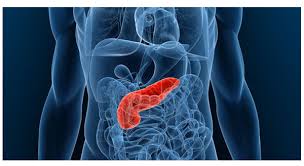- Home
- Editorial
- News
- Practice Guidelines
- Anesthesiology Guidelines
- Cancer Guidelines
- Cardiac Sciences Guidelines
- Critical Care Guidelines
- Dentistry Guidelines
- Dermatology Guidelines
- Diabetes and Endo Guidelines
- Diagnostics Guidelines
- ENT Guidelines
- Featured Practice Guidelines
- Gastroenterology Guidelines
- Geriatrics Guidelines
- Medicine Guidelines
- Nephrology Guidelines
- Neurosciences Guidelines
- Obs and Gynae Guidelines
- Ophthalmology Guidelines
- Orthopaedics Guidelines
- Paediatrics Guidelines
- Psychiatry Guidelines
- Pulmonology Guidelines
- Radiology Guidelines
- Surgery Guidelines
- Urology Guidelines
Two-drug chemotherapy regimen shows promise against pancreatic cancer

CHICAGO: A combination of two chemotherapy drugs has shown promising results in fighting pancreatic cancer, significantly improving five-year survival rates, according to a European study presented Friday.
The trial showed that patients who take the oral drug University of Liverpool in addition to treatment with the commonly-used intravenous drug gemcitabine after surgical removal of pancreatic cancer survived longer without significant increase in negative side effects.
It was one of the largest trials ever conducted in pancreatic cancer, involving 732 patients.
The study was presented at the American Society of Clinical Oncology's annual meeting, the world's largest conference on cancer, currently being held in Chicago.
"Pancreatic cancer remains one of the most hard-to-treat cancers. It is a major win to find that adding a generic chemotherapy not only improves survival for these patients, but does so with little effect on patients' quality of life," said Smitha Krishnamurthi of Case Western Reserve University, who was not a part of the study.
Although most people diagnosed with pancreatic cancer are not candidates for surgery, the findings show that those who can have surgery "have a fighting chance of surviving this cancer with the combination of two commonly used chemotherapies," said John Neoptolemos, the study's lead author of the University of Liverpool in Britain.
The study showed a five-year survival rate of 28.8 per cent among the group treated with both capecitabine and gemcitabine for six months, compared with 16.3 per cent for the group that received gemcitabine alone during that time.
The median overall survival rate was 28 months with the combination of drugs, compared to 25.5 months with gemcitabine alone.
"The difference in median survival may seem modest, but the improvement in long-term survival is substantial for this cancer," Neoptolemos said in a statement.
The study's determination that the gemcitabine-capecitabine treatment is safe allows researchers to consider what other treatments could be added effectively.
According to the World Health Organization, 338,000 people in the world were diagnosed with pancreatic cancer in 2012, with the highest number of cases in North America and Europe.
Pancreatic cancer is the fourth-leading cause of cancer death in the United States, with 41,780 deaths expected in 2016.

Disclaimer: This site is primarily intended for healthcare professionals. Any content/information on this website does not replace the advice of medical and/or health professionals and should not be construed as medical/diagnostic advice/endorsement or prescription. Use of this site is subject to our terms of use, privacy policy, advertisement policy. © 2020 Minerva Medical Treatment Pvt Ltd